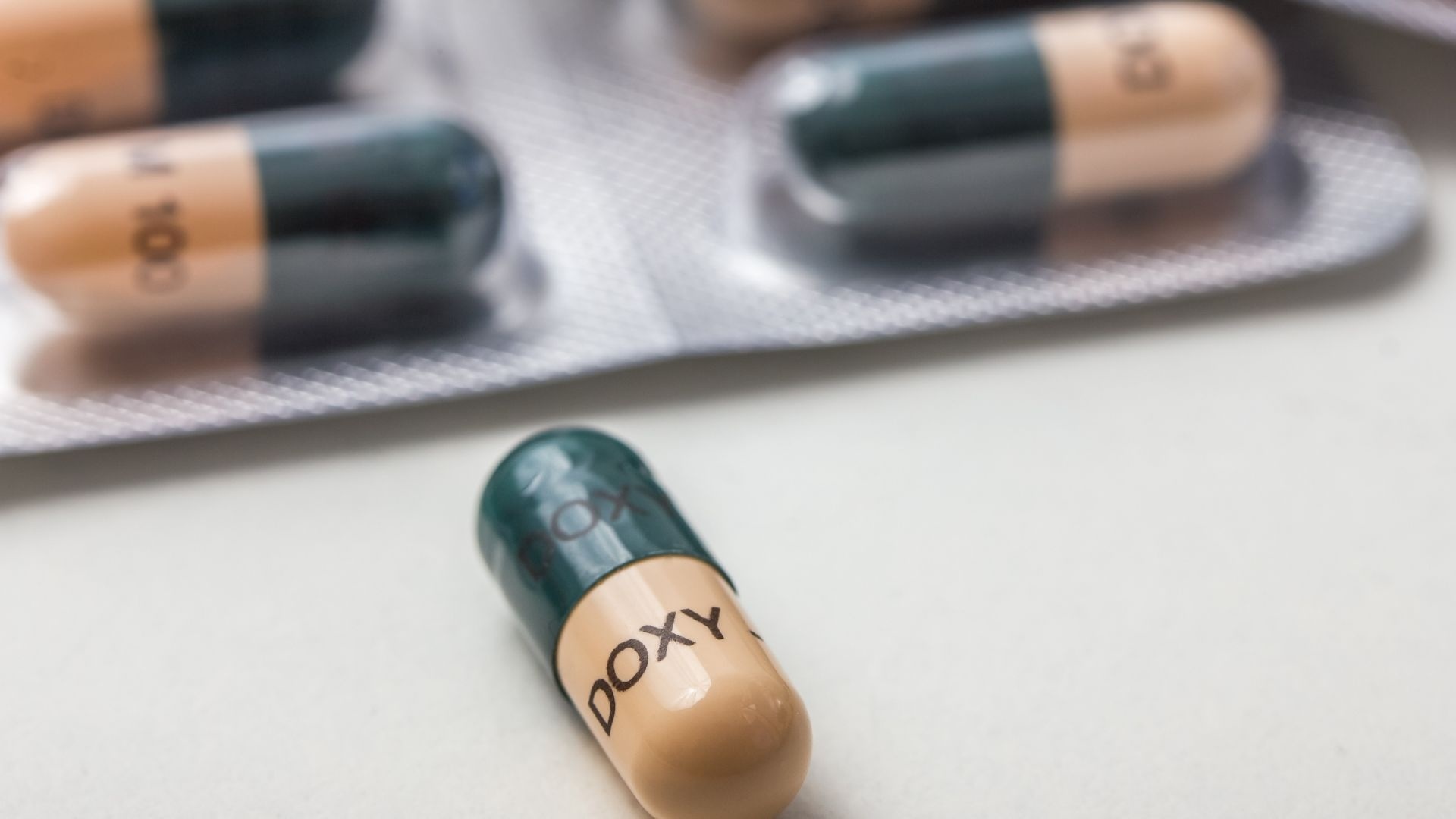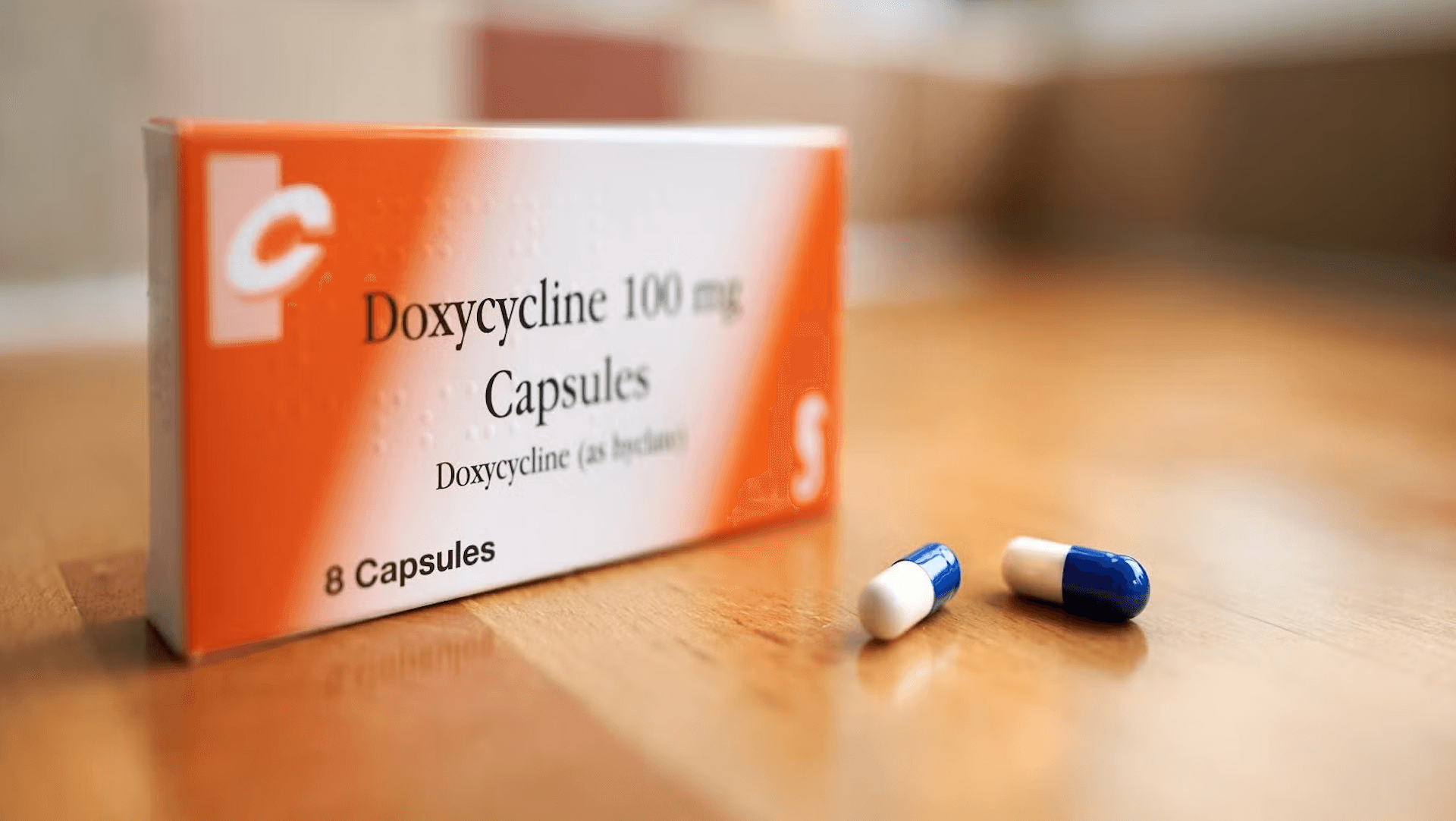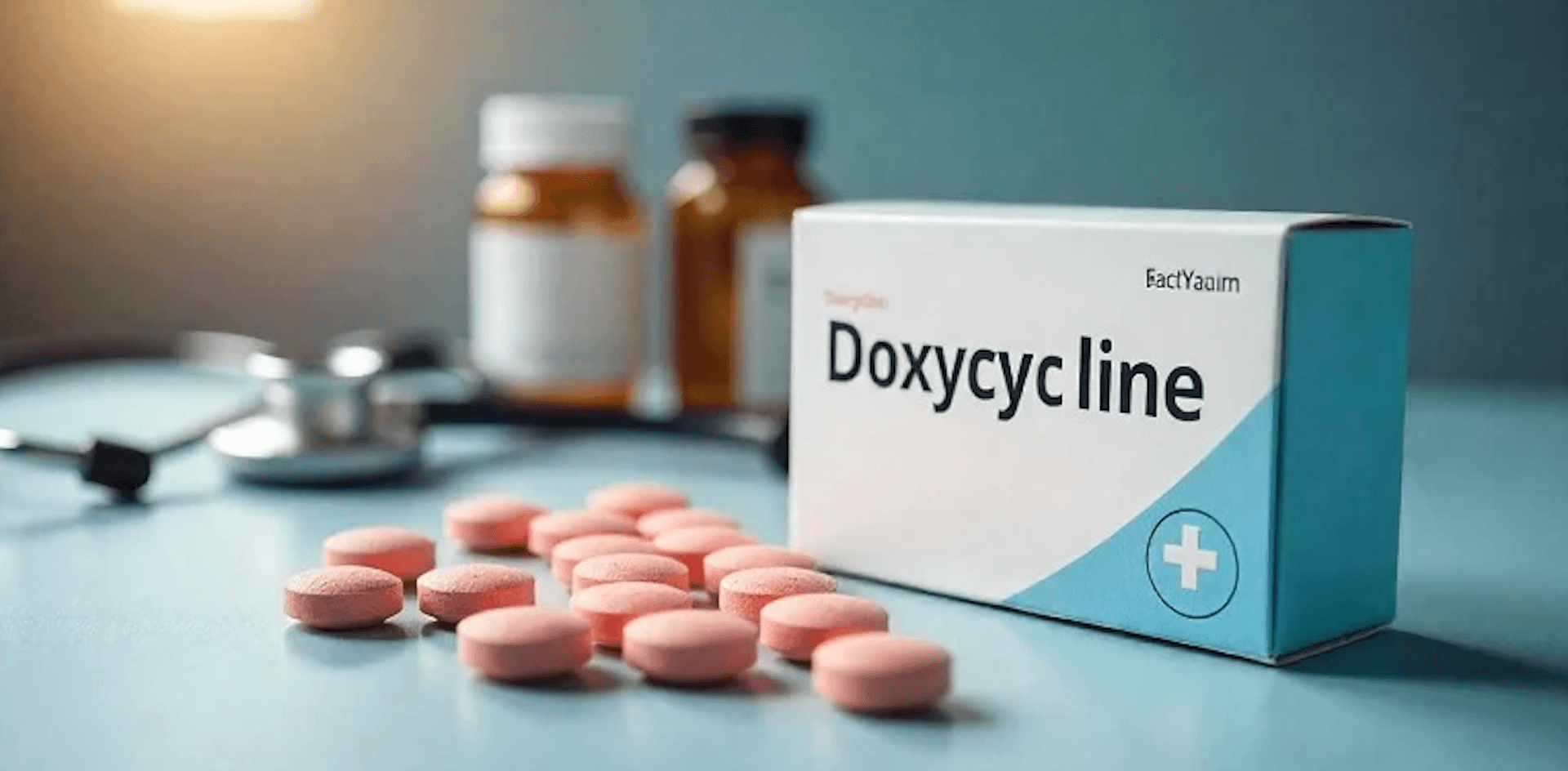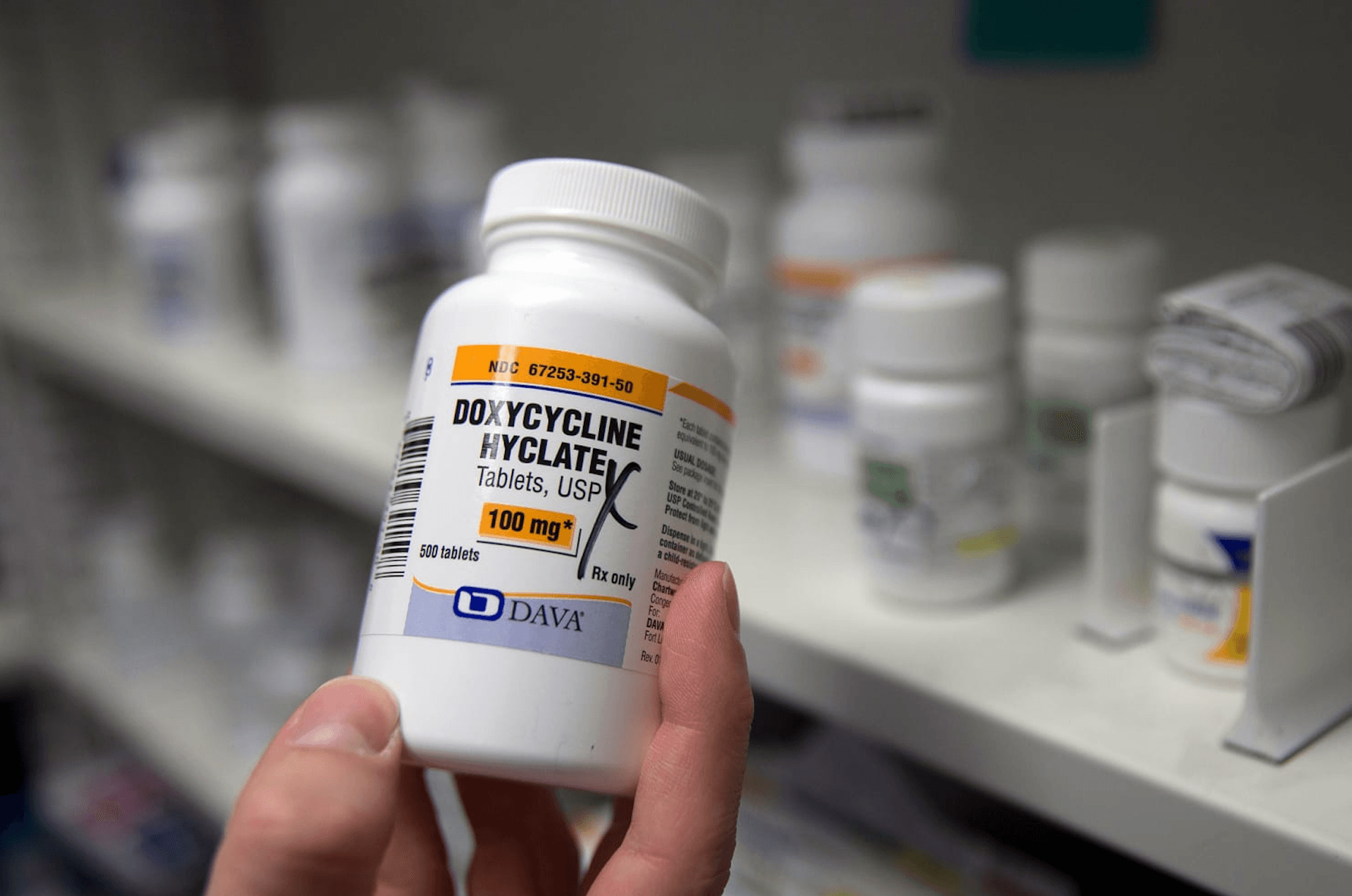How Long Does Doxycycline Stay in Your System? Timeline and Factors


Wondering how long does doxycycline stay in your system? Learn the average timeline, key factors that affect it, and what to expect after your last dose.
Many people in recovery are prescribed medications like doxycycline to treat infections such as skin conditions, dental issues, STDs, or pneumonia. Suppose you're currently in treatment or post-detox. In that case, it’s completely normal to ask how long does doxycycline stay in your system, especially when you're working to stay mindful of everything that affects your body and mind.
At The Forge Recovery Center, we believe informed choices support stronger recovery outcomes. Whether you're concerned about medication interactions, lingering effects, or simply want clarity, we’re here to help. In this article, we will break down doxycycline’s half-life, elimination timeline, and key factors that influence how long it stays in your system.
What Is Doxycycline, and When Is It Prescribed in Recovery?

Doxycycline is a widely used antibiotic that helps treat bacterial infections. It is not a mood-altering or addictive substance, which makes it a safe option during addiction recovery. Here’s when and why it’s commonly prescribed:
Skin Infections or Abscesses
People in recovery, especially those with a history of IV drug use, may develop skin infections or abscesses. Doxycycline helps clear these infections by targeting the underlying bacteria.Pneumonia or Bronchitis After Detox
Respiratory infections can occur during or after detox, particularly when the immune system is weakened. Doxycycline is often prescribed to treat bacterial forms of pneumonia and bronchitis, helping clients stabilize physically during early recovery.Treatment for STDs
Sexually transmitted diseases such as chlamydia and syphilis are sometimes diagnosed during intake assessments or medical screenings. Doxycycline is a first-line antibiotic for these conditions and can prevent long-term complications.Dental Infections or Jaw Pain
Long-term substance use can lead to poor oral health, including infections or pain from untreated dental issues. Doxycycline may be used to treat infected gums, abscesses, or tooth-related inflammation while clients begin their treatment journey.Non-Addictive and Safe in Recovery
Doxycycline does not affect the brain’s reward system. It is non-habit-forming and generally safe to use under medical supervision. When taken as prescribed, it supports physical healing without compromising sobriety.
At The Forge Recovery Center, we educate our clients on medications used during treatment. Understanding what you’re taking and why helps build trust, safety, and confidence in your recovery process.
How Long Does Doxycycline Stay in Your System?
Knowing how long doxycycline stays in your system can help you make informed decisions, especially during treatment or early recovery. Here’s a breakdown of what to expect:
Half-Life of Doxycycline: 18 to 22 Hours
The half-life is the time it takes for half of the drug to leave your body. For most healthy adults, doxycycline’s half-life ranges between 18 and 22 hours. This means it gradually tapers off over a few days after your last dose.Full Clearance: About 4 to 5 Days
After completing a full course, doxycycline usually clears from the system within 4 to 5 days. This can vary slightly based on your metabolism, kidney and liver function, hydration levels, and overall health.Residual Effects Are Minimal
While the medication is typically gone within a few days, you may feel minor residual effects such as digestive changes or sensitivity to sunlight for a short time. These symptoms are not caused by the drug remaining active in your body, but may be lingering side effects.Does It Show Up on Drug Tests?
Doxycycline is not a controlled substance and is not tested for on standard drug panels. It will not interfere with sobriety-related drug screenings.Safe Use During Recovery
As a non-addictive antibiotic, doxycycline is considered safe for use during recovery when taken as prescribed. Let your care team know if you are experiencing side effects or have concerns.
Are You Struggling with Mental Health or Addiction?
We Can Help. Call Us Now!
CALL: 877-839-1772
Factors That Affect How Long It Stays in Your Body
While doxycycline usually leaves the system within a few days, several personal and health-related factors can influence the timeline. Here’s what can affect how long it stays in your body:
Metabolism and Liver Function
Your metabolism plays a big role in how quickly your body processes and eliminates medications. If your liver is still healing from alcohol or drug use, it may take longer for doxycycline to fully clear.Other Medications
Some medications can interfere with how doxycycline is processed. These include treatments often used in recovery, such as Suboxone, Vivitrol, and certain antidepressants. Always share your full medication list with your care provider.Length of Prescription
A short-term, one-week course of doxycycline typically clears faster than longer treatments. The more doses you take, the longer it may take for your body to eliminate all traces of the drug.Hydration and Nutrition
Staying well-hydrated and maintaining proper nutrition can help your kidneys and liver function efficiently. These organs are responsible for flushing medications from your system.Gut Health and Absorption
Long-term substance use may disrupt gut health, which can affect how your body absorbs and processes medications. A weakened digestive system may either slow down or unpredictably alter drug elimination.Individual Health Differences
Age, weight, and overall physical health also influence drug metabolism. What clears quickly for one person may take slightly longer for another.
Is It Safe to Take Doxycycline in Recovery?

If you’re in recovery, it’s natural to question whether a new medication could affect your sobriety. Fortunately, doxycycline is generally considered safe. Here’s why:
It Is Not Addictive
Doxycycline is an antibiotic, not a controlled substance. It has no addictive potential and does not trigger cravings or interfere with the brain’s reward system, making it safe for people in recovery.No Psychoactive Effects
Unlike mood-altering medications, doxycycline will not cause euphoria, sedation, or changes in perception. It treats bacterial infections without affecting your mental state or sobriety.It Will Not Cause a Relapse
Taken as prescribed, doxycycline will not lead to relapse. It’s a helpful tool in supporting physical healing during recovery and does not interfere with behavioral or addiction treatment.Tell Your Team About Side Effects
Some people experience side effects such as nausea, stomach upset, or dizziness. These are common and not dangerous, but should still be communicated to your treatment team so adjustments can be made if needed.Check for Medication Interactions
If you are on Medication-Assisted Treatment (MAT) like Suboxone or Vivitrol, or taking antidepressants, it’s important to confirm there are no interactions. Your provider can ensure your treatment remains safe and effective.Stay Committed to Open Communication
Transparency with your care team helps avoid misunderstandings and ensures you receive the right support. Always ask questions if you’re unsure about a medication’s impact on your recovery.
At The Forge Recovery Center, we help you understand every part of your treatment, including how medications like doxycycline fit into your recovery journey.
Are You Struggling with Mental Health or Addiction?
We Can Help. Call Us Now!
CALL: 877-839-1772
Why People in Recovery May Worry About Any Medication
For many in recovery, taking any medication (especially pills) can feel risky or uncomfortable. These concerns are valid and common, particularly in early sobriety. Here’s why these feelings come up and how to address them:
Past Trauma with Pills or Drug Use
Some people in recovery associate taking any pills with their past addiction. Even non-addictive medications like antibiotics can trigger emotional discomfort or fear of slipping back into harmful patterns.Fear of Relapse
There’s often anxiety that any medication might alter mood or lead to cravings. While this is understandable, medications like doxycycline have no psychoactive effects and do not interfere with sobriety when taken correctly.Concerns About “Cleansing the System”
Some clients worry that any medication will “pollute” their body or delay their detox progress. In reality, antibiotics support your recovery by treating infections that, if left untreated, could compromise your health and clarity.Misinformation About What’s Safe
Not everyone knows how different medications affect the body. A lack of accurate information can lead to fear or avoidance of helpful treatments. That’s why education is key in recovery.Risk of Avoiding Necessary Medical Care
Skipping prescribed antibiotics out of fear can lead to serious infections. Untreated illness can weaken your body, increase stress, and derail your momentum in treatment.Healing Includes Medical Support
Recovery is about building a strong, healthy foundation. Taking antibiotics like doxycycline when prescribed is part of caring for yourself and moving forward in your healing.
What About Drug Testing in Treatment Programs?

Drug testing is a standard part of many recovery programs, and it’s natural to wonder how a prescribed medication might affect your results. Here’s what you need to know about doxycycline and drug testing:
Doxycycline Does Not Appear on Routine Drug Tests
Standard urine drug screens are designed to detect substances like opioids, benzodiazepines, stimulants, cannabis, and alcohol, not antibiotics. Doxycycline is not part of any drug testing panel commonly used in treatment programs.It’s Not a Controlled Substance
Doxycycline is an antibiotic used to treat infections, not a controlled or addictive medication. It has no psychoactive properties and does not interfere with your sobriety or mental clarity.You Will Not Trigger a Positive Result
Taking doxycycline will not cause a false positive or “red flag” result on your urine screening. Your treatment team will be aware that it is a legitimate medical prescription and will not misinterpret its presence.Always Disclose Medications to Your Team
Even though doxycycline is safe, it’s important to tell your counselor, case manager, or medical provider about all medications you’re taking. This promotes transparency and ensures there are no unexpected interactions with other treatments.Reporting Builds Trust
Sharing your medication list helps build trust with your recovery team. It shows responsibility and commitment to your healing, and your providers will appreciate your honesty.Stay Informed and Empowered
Understanding how medications work with drug testing can relieve unnecessary stress. At The Forge Recovery Center, we educate clients so they can navigate recovery with confidence, clarity, and peace of mind.
Are You Struggling with Mental Health or Addiction?
We Can Help. Call Us Now!
CALL: 877-839-1772
Conclusion: Healing Means Caring for Your Whole Body
In recovery, every choice you make supports your healing, including how you care for your physical health. If you’re prescribed doxycycline, know that it’s there to help, not hinder, your progress. It’s non-addictive, safe, and fully clears from your system within a few days.
At The Forge Recovery Center, we believe real recovery means treating the whole person: body, mind, and spirit. If you ever feel unsure about a medication, you don’t have to figure it out alone. Reach out to our team for guidance, support, and answers. Your recovery deserves that level of care.
Are You Struggling with Mental Health or Addiction?
We Can Help. Call Us Now!
CALL: 877-839-1772





